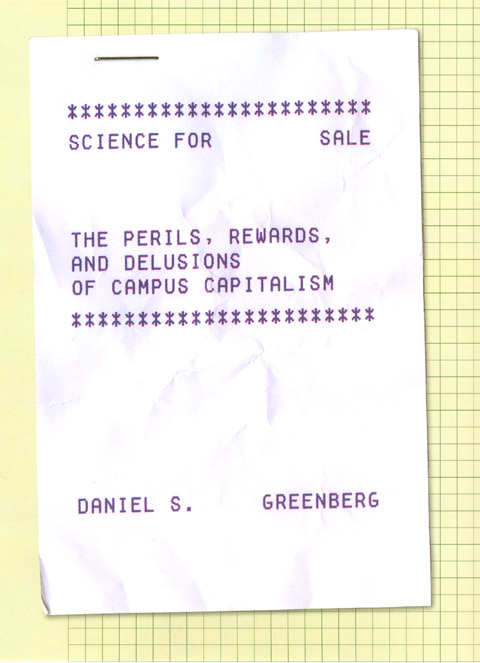Review: Greenberg, Science for Sale

Daniel S. Greenberg’s Science for Sale: The Perils, Rewards, and Delusions of Campus Capitalism received a positive review in this month’s BBC Focus magazine. Greenberg’s book is a detailed study of the relationship between academia and the commercial sector—a relationship which some critics argue has corrupted the quality of academic inquiry, especially in the sciences. But as reviewer Steve Fuller notes, Greenberg’s penetrating new book reveals that campus capitalism might, in fact, not be as nearly as bad as commonly thought. Fuller writes:
Greenberg’s story is framed by the passage of the Bayh-Dole Act by the US Congress in 1980, which allowed universities and other non-profit institutions to seek intellectual property rights without seeking prior government approval.… The nation as a whole would presumably benefit from the commercial availability of such privately protected science.
However this ‘neo-liberal’ turn in US science policy has led to a host of allegations. These range from big business trying to buy large biomedical science departments to a breakdown in the peer review process through undetected cases of research fraud. Greenberg’s verdict is that while such cases do exist, their rarity is even more striking.
Greenberg provocatively argues that overblown claims about the capitalist corruption of academia may turn out to be self-defeating. Universities already provide an array of free or low-cost service for business, from training potential employees to researching potentially lucrative fields. Moreover such activities are bound to increase in the coming years. In that case, it might be in academia’s own interest to cultivate more explicit ties with the commercial sector, if only to ensure that business pays its own way.